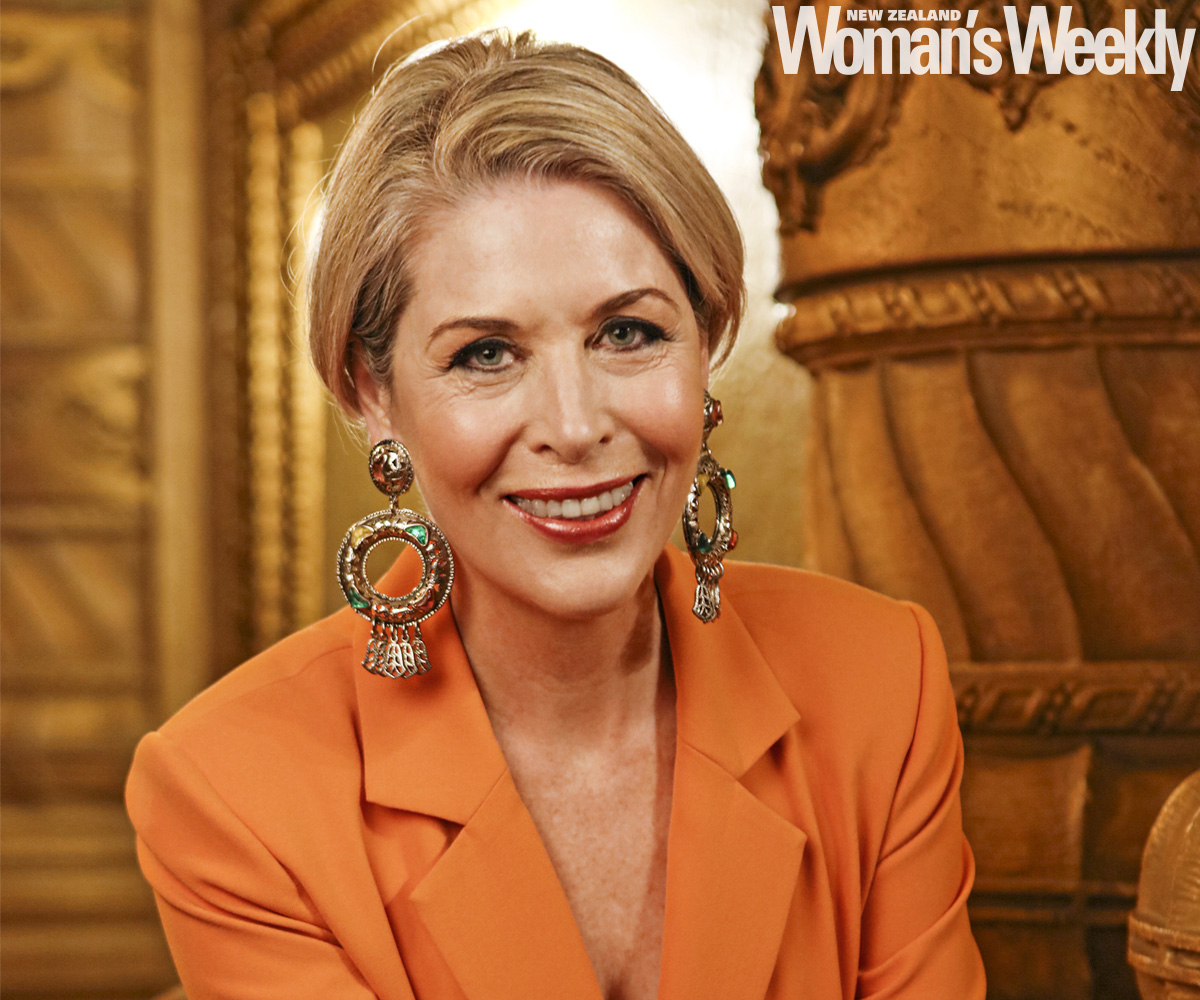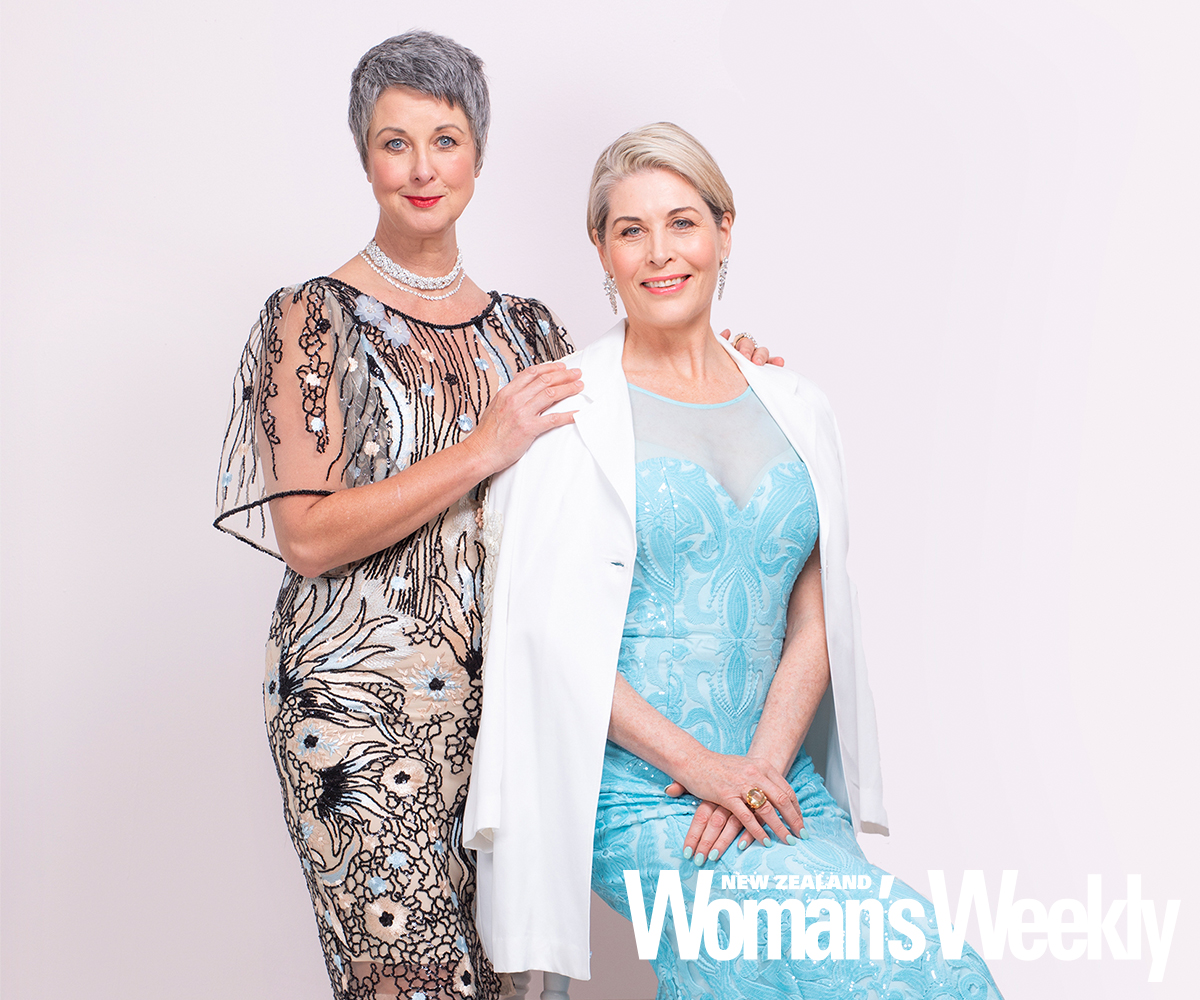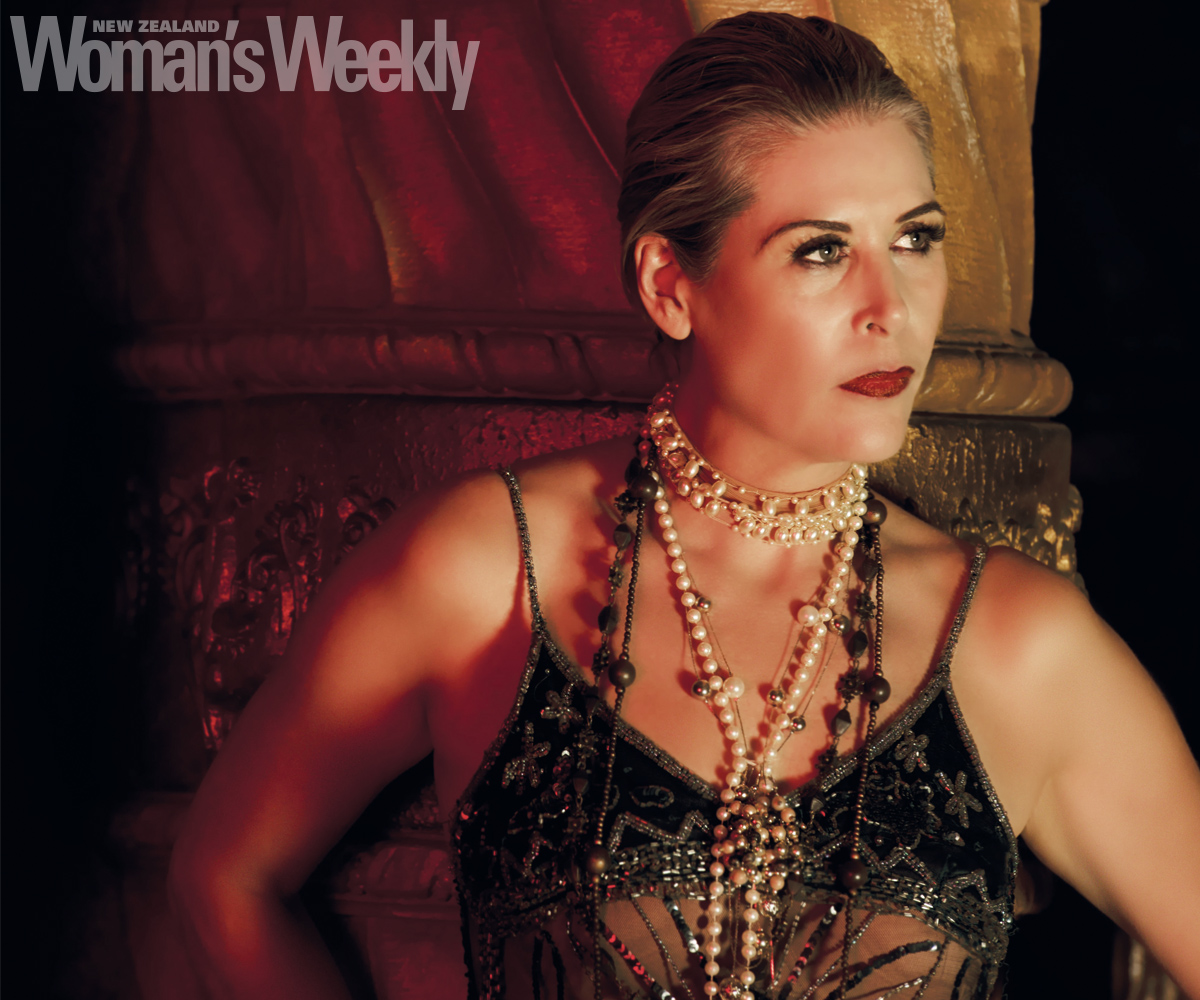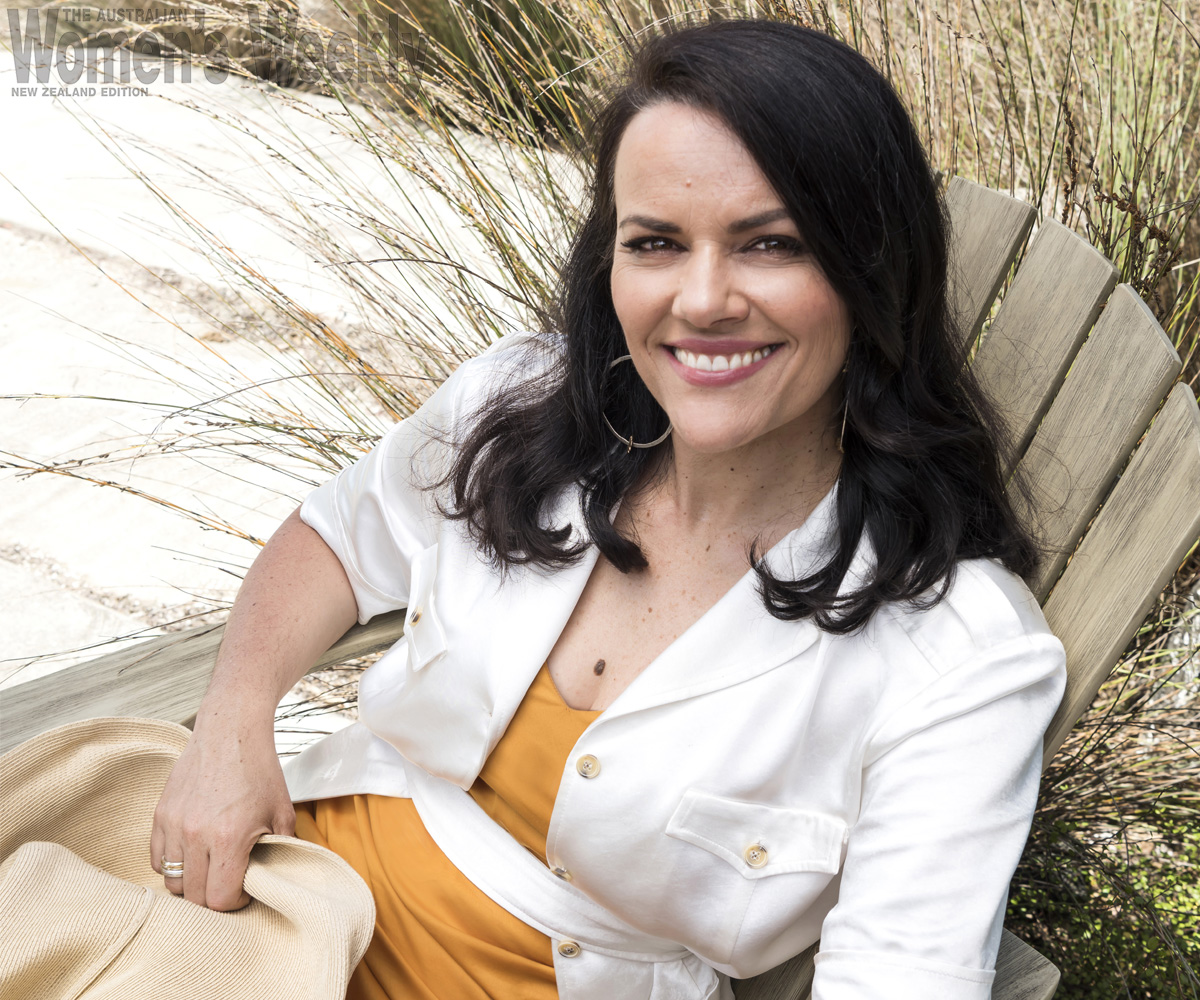When Kiwi showbiz legend Jennifer Ward-Lealand Te Atamira was awarded the title of New Zealander of the Year, she admits she was a bit taken aback.
“E kore te kūmara e kōrero mō tōna ake reka,” she said to the cheering audience, which means: The kumara doesn’t talk about its own sweetness.
“I’ll leave that for other people!”
Even as she chats to the Weekly a week on from her triumph at the annual awards, Jennifer (57) says she’s thrilled and honoured – but is simply following her dual passions of supporting the arts and being an ally for te reo Māori.
“These are the things that are important to me,” she says with a shrug. “So I will passionately advocate for them.”
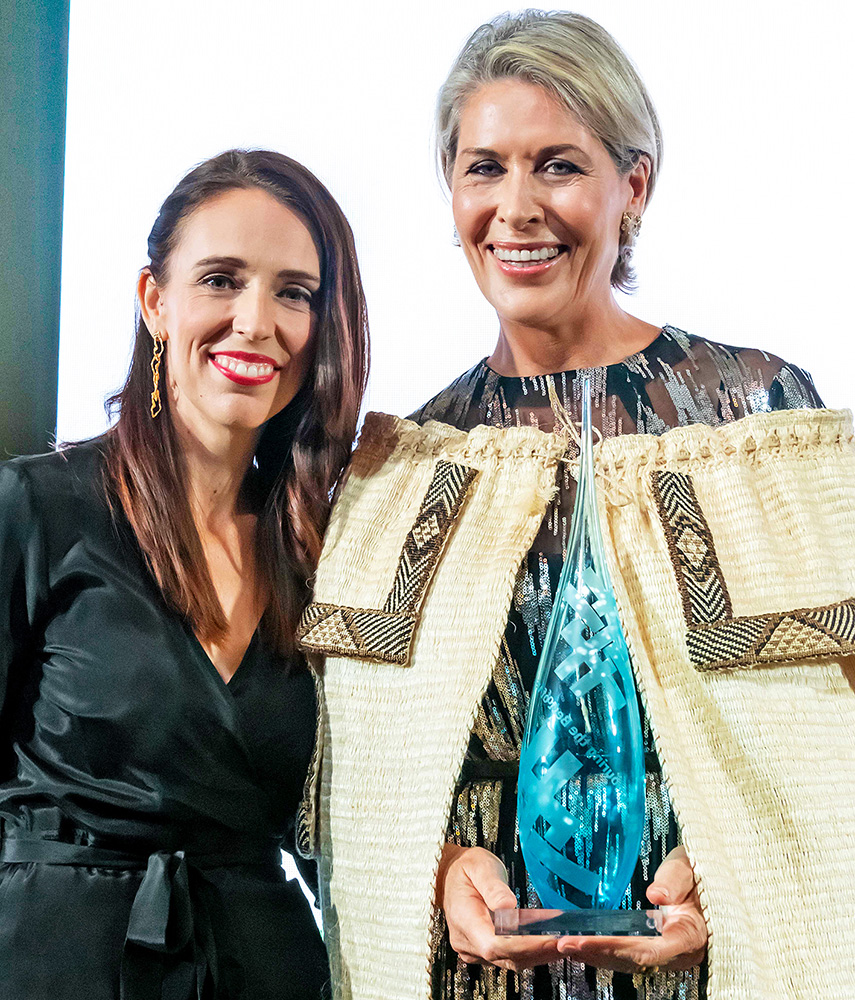
Prime Minister Jacinda Ardern presents the award.
Her name is synonymous with New Zealand’s theatre scene, and it’s a love she’s had since the tender age of seven, when her father Conrad took her to her first play.
“He passed away last year – as did [my husband] Michael’s dad,” she says.
“And that’s the only thing, really. I wish that he’d been there on the night. He would have been grinning from ear to ear. I thank him so much for taking me along to my first play… I wouldn’t be doing what I’m doing without my dad. I carry him in my heart particularly at this time.”
It’s true that 2019 was a particularly unsettled time for both Jennifer and her husband, celebrated director Michael Hurst (62), with whom she has sons Jack (23), a camera operator currently working on the last season of Westside, and Cameron (20), who is in his second year of a music production degree.
“The apple doesn’t fall far from the tree!” she says.
But things are looking much brighter in 2020 for the talented pair – if not any less busy!
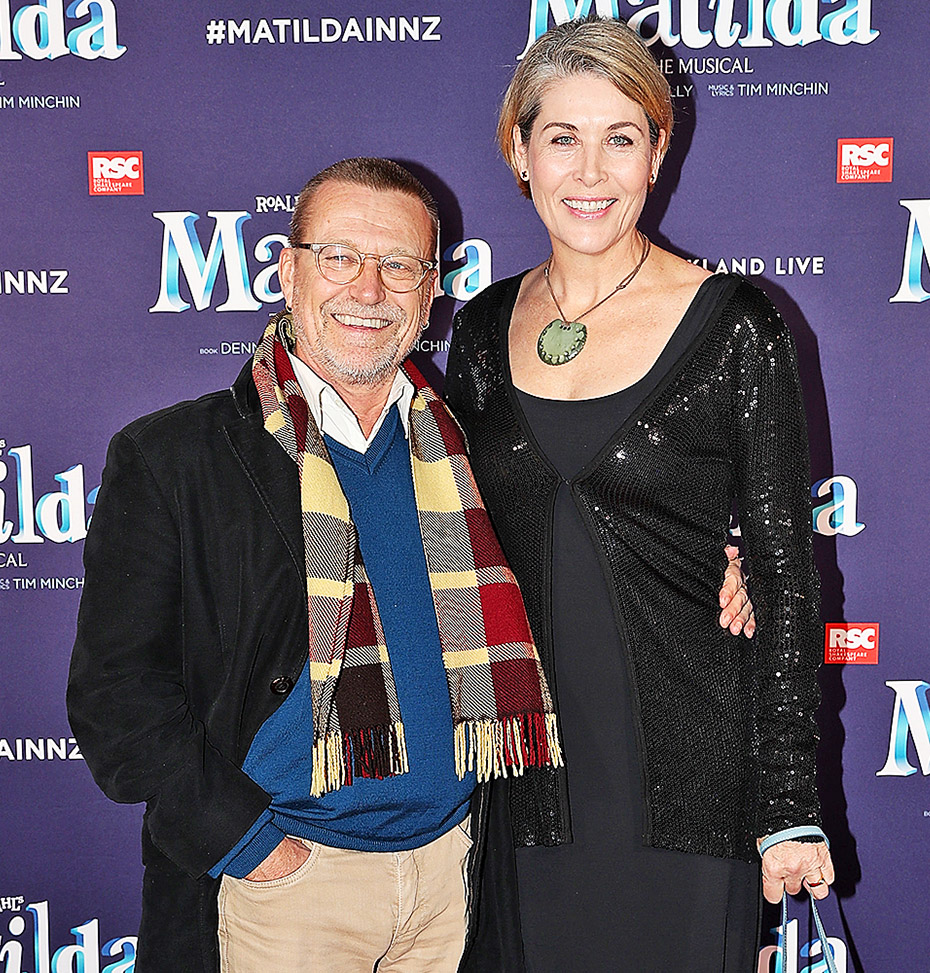
Jennifer with her husband Michael.
Along with her continued work celebrating the arts and te reo, Jennifer is adding another line to her CV by becoming an “intimacy coach”, an on-set coordinator who helps actors feel safe and secure during particularly intimate scenes.
She explains, “It’s the same as if you had a stunt in a show – you’d commit resources to it, you’d make sure there was rehearsal time, you’d make sure the actors are safe, and you’d choreograph things so no-one gets hurt.
“An intimacy coordinator is exactly the same thing, but in the intimate space. It’s not necessarily just for scenes with a sexual nature. It’s things like bathing a frail elderly person, changing a baby’s nappy. It’s anything where you’re going into someone’s intimate space.
“It’s a good string to my bow, yes – not that I needed another one!” she says, laughing.
“But I realised that it used all of my skills as an actor, director and teacher, and I like working with the actors to make scenes much safer, cleaner and easier.”
She’s also the president of Equity New Zealand, the organisation that represents performers working in New Zealand’s entertainment industries, and she says one of her big focuses is to champion roles for older actresses, particularly in film and TV.
“You start seeing fewer lead roles, and different sorts of employment practices, you could say, that take place as women get older. These things need to be righted.”
She says theatre, by comparison, is “the bastion of the complex female, because the roles are more focused on the plot, rather than how we look.
“Theatre is, for me, why I think I’ve had such a long career, because I’ve done so much of it.”
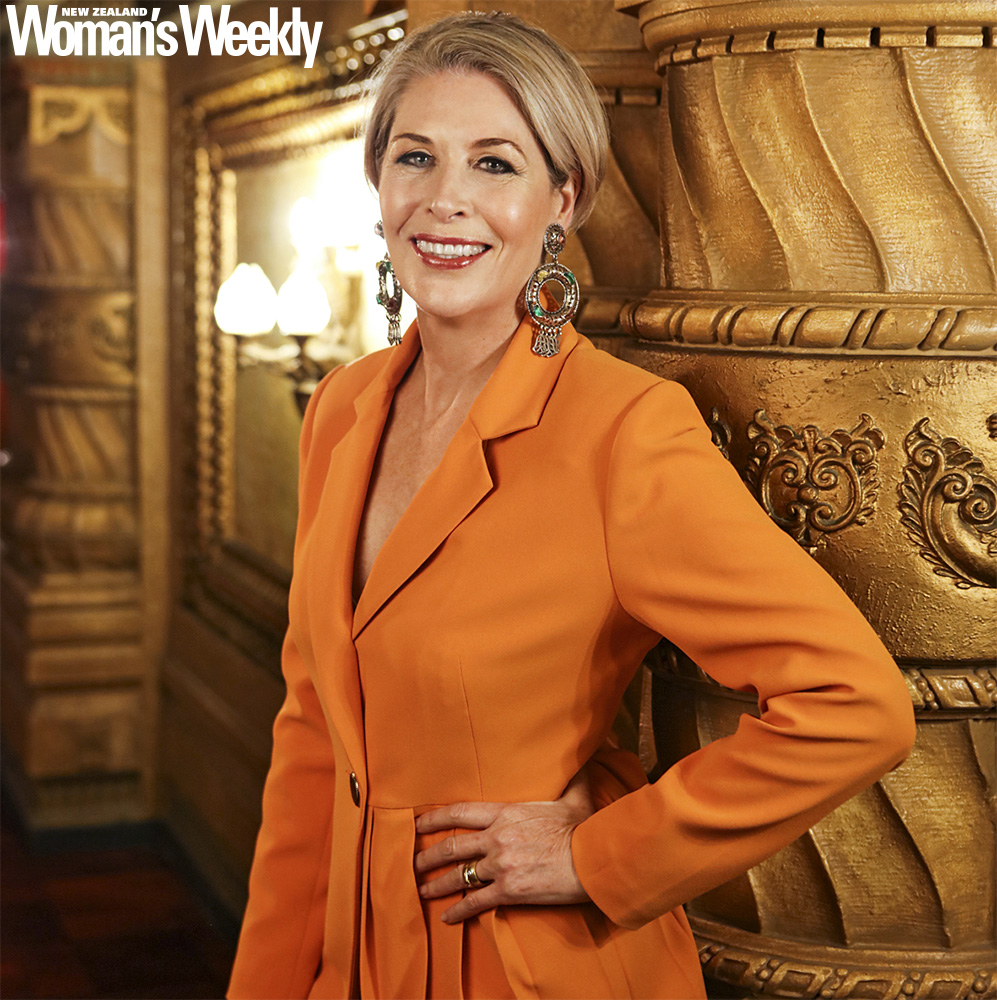
And of course, there’s her advocacy for te reo, which she started learning at the age of 46 after realising she didn’t know how to respond properly to a welcome.
“I thought, ‘Never again,'” she says.
“As one of my teachers said, I’m now a soldier for the reo, nothing more, nothing less. When I was given the name Te Atamira, I took that responsibility very seriously. It means “the stage” – it’s where I work and it’s where I get the chance to champion te reo Māori.
“When I first started learning it 11 or so years ago, people would ask me in interviews, ‘Why? What use is it to you?’ I always found that so weird, that I had to defend my use of it. But boy, that opinion has changed. Now people want to know how to learn it themselves – and I’ll happily point them in the right direction.”
And while her professional plate is full for the year ahead, she’s taking a few weeks out to travel to Switzerland with her stepmother.
“She and my dad have a house there, so we’ll go back together to sort through things,” she says.
“That will be very bittersweet, but it will be good to carve out the time and not do any work. We’re just going to go and be there.”
